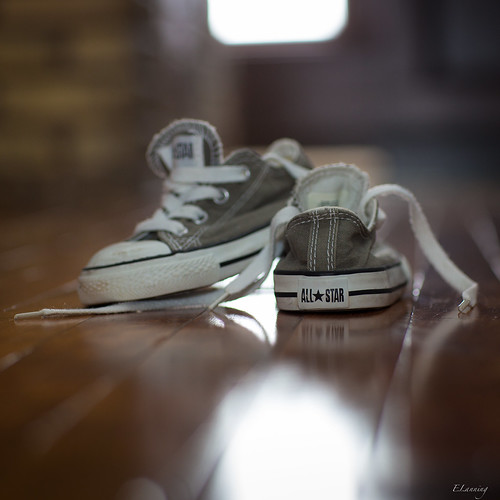In Appreciation: An Exercise in Perspective Taking
An Exercise in Perspective Taking
 I remember a few years ago, seeing a dad at the library whose two kids were pretty out of control. Within minutes of entering the kid’s section, they had their shoes and socks kicked off even though he repeatedly told them not to. As he collected their discarded items off the carpet, he looked beaten down in that way that only an overwhelmed parent can.
I remember a few years ago, seeing a dad at the library whose two kids were pretty out of control. Within minutes of entering the kid’s section, they had their shoes and socks kicked off even though he repeatedly told them not to. As he collected their discarded items off the carpet, he looked beaten down in that way that only an overwhelmed parent can.
I hate to admit this now, but I totally had a moment of righteous judgement about his parenting. I’ve thought of this moment many times since, not because it still makes me feel smug, but because experience has taught me, often and in public, how any parent can get overwhelmed by even the usually best-behaved children.
At that time though, I was far too caught up in judging his kids’ shoes strewn on the floor to bother asking myself what it might be like to walk in his. I exercised judgmentalness, when empathy would have suited both of us much better. So how exactly do we strengthen our empathy muscles to make sure they are strong when we need them? (And I think we need them now more than ever.)
Cognitive empathy is specifically the skill where you can imagine what it might be like to walk that proverbial mile in someone else’s shoes. It is about perspective taking. There are many exercises to strengthen that cognitive empathy muscle. One that I find works well for smaller children, and that can be done whenever the moment strikes, is to ask your children to think about other people’s perspective when they themselves are already expressing interest in a person. And kids are full of interest about other people, especially when the other person is showing a strong emotion.
For example, when a baby cries at the grocery store, even if it is seven aisles away, my kids always ask me why the baby is upset. Instead of simply answering with my guess as to why most babies cry, I turn the question back to them. Why do they think the baby is crying?
They are very receptive to this question, and we go through the different possibilities. The baby might be hungry, or have a dirty diaper, or have just been told “No” (my preschooler is always sure this is a likely scenario). The baby might be teething or missing someone they love. The important thing is not to get the right answer, since we can’t actually know, but to practice imagining someone else’s experience.
We do the same exercise when my kindergartner or preschooler talks about an issue from school. When a friend got upset with my older daughter because she was spending more time with another friend, we talked a lot about what the friend might have been feeling to get upset, and how taking that perspective into consideration, she might talk to her friend about it.
And of course, this exercise works on adults as well. There are moments daily when I feel my indignation want to flare up. (It is so easy! It feels so right!) In those moments a little cognitive empathy goes a long way to building the bridges that righteous ignition is always ready to burn down. And no matter what mile you have to walk in your shoes, odds are you’ll have to cross a bridge or two to get where you are going.
[Photo credit: (cc) Eric Lanning]
ABOUT THE AUTHOR
Amy Diehl
 Amy is a freelance writer and digital communications specialist who has lived in Western Massachusetts for the last ten years. The mother of two young daughters, Amy is a frequenter of coffee shops and bookstores, and an avid hiker. She is a long-time student of mindfulness meditation, and loves nothing more than a good friend, a good book, or a good nap.
Amy is a freelance writer and digital communications specialist who has lived in Western Massachusetts for the last ten years. The mother of two young daughters, Amy is a frequenter of coffee shops and bookstores, and an avid hiker. She is a long-time student of mindfulness meditation, and loves nothing more than a good friend, a good book, or a good nap.
 Hilltown Families
Hilltown Families 





























